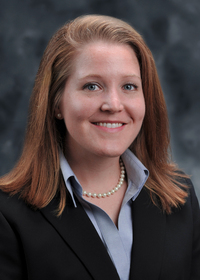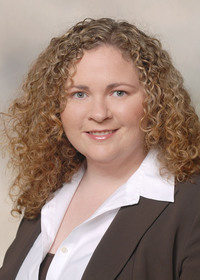Managing Personal Finances during COVID-19
Topics
Advance Child Tax Credit payments in 2021
Keep the Most Important Thing the Most Important Thing
Money Management in Tough Times
Borrowing from Retirement Funds
State of Mississippi Government Support
Financial well-being means having financial security and the freedom of choice in the present and in the future. The economic implications of COVID-19 are adding more uncertainty to the already precarious financial situations many Mississippians find themselves in.
This toolkit provides information and resources to help individuals and families stabilize and improve their financial well-being as they weather loss of income and declining asset values. It is also intended to help consumers protect themselves now and position themselves for a stronger financial future.
Keep the Most Important Thing the Most Important Thing
Be intentional about being calm.
The threat of COVID-19 triggers panic and a “scarcity” mindset. When we panic, we tend to lose perspective and focus too narrowly on a problem, often making things worse. Staying calm and managing stress takes time and effort, but it will be worth it.
We can do our best to follow the CDC's health guidelines by washing our hands often, practicing social distancing, and getting our household plan in place.
When feelings of panic or anxiety set in, take a moment to control your breathing. Take deep breaths and hold them momentarily, giving yourself time for those feelings of panic and anxiety to subside. Take breaks from the news. Stretch and move your body, eat healthy foods, and get plenty of sleep. Share your feelings and experiences by connecting with friends and family digitally.
Here are additional ways to proactively manage anxiety.
Remember that our financial resources are just one of our resources.
When we think of “resources,” we often think just about our bank accounts and other financial resources. But we all have other equally important resources that we can rely on to keep us going through tough times, and some can be used to build financial resources. Think about your social network and support systems, your faith, your grit and desire to make it, your ability to adapt, as well as your mental, physical, and spiritual strength. Drawing on your inner and outer resources allows you to take action, which is an essential human need in times of crisis.
Here is a resource on building a support network.
Talk about it.
Even in a good economy, money is a top stressor in our lives. For many people, money is a taboo topic in conversation, so we often avoid dealing with it or we handle money conversations in an unhelpful way. While money disagreements are not the top source of marital conflict, they have been shown to be “more pervasive, problematic, and recurrent, and remained unresolved” (Papp et al., 2009).
Realizing that each of us has a different “relationship” with money can be a helpful first step in improving communication around money issues. You can begin by asking yourself some of these questions while recognizing and appreciating that others around you will have had different experiences:
• What is your “history” with money? How has your history developed and changed over time?
• What are your earliest memories (good and bad) of money as a child? What is your first memory regarding disagreements about money?
• How did your parents talk about money? How did your parents agree about how to deal with money?
Self-assessments can help us understand our relationship with money and improve how we communicate about money. Here are three to try:
For guidance on talking about money.
For tips on how to talk with your kids about money.
Remember your future self.
While we need to stabilize ourselves and our financial situation at the moment, don’t forget about your future self—you will want to spend money on the things you want in the future, too. The U.S. economy has rebounded from many recessions and will rebound from this one. And there will be more recessions in the future.
Using this opportunity to form a habit of saving and to build an emergency and/or retirement fund will smooth out the sharp corners when income dips in the future. Even if it is a small amount, keep adding to your emergency fund and retirement fund. Make other cuts first, if possible, or find new income streams before you eliminate those deposits.
It’s the habit of saving that matters, and, once your income goes back up, you should increase the size of your deposits. Even if you are not adding a lot, following through on adding to an emergency fund and continuing to contribute to your retirement fund gives you confidence today that you will be ready for the future. This can give you the momentum you need to get through difficult spots today.
General Guidelines to Protect Yourself Financially from Coronavirus
The Consumer Financial Protection Bureau has a list of resources for consumers managing finances during this challenging time. You can locate updated information on many topics, including mortgage relief, student loans, online banking tips, debt management, and credit protection.
Bankrate.com provides several guides, including recession-proofing your finances.
Consumer Protection
We need to stay vigilant in protecting ourselves in today’s digital economy. However, online security is even more important during a downturn. Remember, if it seems too good to be true, it probably is.
For a list of state and local consumer protection agencies in Mississippi.
Scams
Scammers are active amid COVID-19, especially through robocalls pretending to be from the Social Security Administration, fake coronavirus tests for Medicare recipients, and scams baiting small-business owners into buying bogus listing services. Do not answer phone calls that may be potential scammers, and hang up immediately if you do answer a scam call. Do not click on links you do not recognize! If you are uncertain about the legitimacy of a phone call, such as from the Social Security Administration, hang up and find the phone number listed on an official website (ssa.gov). Never call back using a number left by a robocall. The Federal Trade Commission has more information.
Person in need scam. This scam is normally targeted to the elderly and asks for money for a fake person who is said to be sick.
Social security scam. This scam is when someone asks for your social security number in order to get the COVID-19 stimulus check. Do not give anyone your social security number—the Social Security Administration and the IRS already have it.
Fake charity scam. This scam is a request for money from a charity that does not exist. There are many good charities that can benefit from donations right now. Investigate before giving by asking people you know and going to official websites. Do not click on a link you are not familiar with. The Mississippi Secretary of State has a tool to screen charities in Mississippi.
Identity Theft
Identity theft happens when others open accounts, file tax returns, or make purchases in your name. Read about ways to protect your identity and report an identity theft.
Price Gouging
During crises, such as the COVID-19 pandemic, some retailers may significantly increase the cost of goods and services. Merchants can pass on legitimate higher costs to their customers. However, customers need to be aware of price gouging.
Price gouging occurs when the price of a good or service is significantly higher than other comparable goods and services being sold in the area. If you suspect price gouging, report it by taking a photo of the product or sign (with the time-stamp, date, and location) and sending it with your information to webpage@ago.ms.gov (or call 601-359-3680).
You can find more information from the Office of the Mississippi Attorney General.
Financial Advisors
Having a plan for emergency funds, life insurance, disability insurance, and estate planning before a crisis occurs makes living through one much smoother. When looking for someone to help you manage your finances, look for someone who is a fiduciary. A fiduciary is someone who must put the interest of the client first. While this might seem like a no-brainer, remember that people go into business to make a profit, and some are willing to put their profits before a client’s best interest.
Financial Educators
Financial educators are not trained to give financial advice, but they can make referrals and help you create a budget and brainstorm local resources. If you would like to get in touch with an MSU Extension financial educator, contact your local MSU Extension office or Dr. Becky Smith.
Financial Counselors and Coaches
Financial counselors and coaches help people manage debt, improve their credit, and clarify future goals and steps to achieve those goals. Avoid people and businesses that charge for “credit repair.” Instead, find credible financial counselors here:
- Association for Financial Counseling, Planning, and Education (AFCPE)
- National Foundation for Credit Counseling (NFCC)
- Money Management International
Financial Advisors
Financial advisors help people manage assets and prepare for retirement. Look for Certified Financial Planners (CFP®). Avoid financial advisors who make money by selling you products they have a vested interest in. Search fee-only financial advisors who are members of the National Association of Personal Financial Advisors (NAPFA).
Money Management in Tough Times
When your income drops, act sooner rather than later. When we are panicked, we are more likely to make mistakes, and sometimes we go into denial. Follow these steps using the resources below to be proactive in keeping your situation from becoming worse:
1. Create a budget by listing income and monthly bills. Now is the time to think about what you can do without and find cheaper ways to entertain yourself. Remember that it won’t be forever.
2. Prioritize monthly bills and when they are due.
3. Let your creditors know before you miss a payment. Many people find talking to others about their tight financial situation very difficult. Remember that we are all human and in this together. Creditors are more willing to work with borrowers who communicate and demonstrate intentions of paying off debt, even if it takes longer. However, recognize that creditors may only “assist” you for a short period of time.
4. Build an emergency fund while you are paying down debt.
5. Find new income streams. Use your creativity to find ways to “monetize” your skills with what others would value. Grocery stores, fast food restaurants, and delivery services are hiring. Find ways to build your skills now so that you will be ready for employment when hiring begins again.
Here are some helpful resources:
Money Traps that Can Keep You Broke
Considering Foreclosure and Bankruptcy
Emergency Fund
Emergency funds are the foundation of having peace of mind when it comes to your finances. The goal is to save enough for at least 3 to 6 months of expenditures. Emergency funds can keep you from paying interest on borrowed funds, from relying on payday loans and pawn shops, and from borrowing from friends and family.
Currently, 46 percent of Americans do not have an emergency fund with 3 months of expenditures. Additionally, only 61 percent of Americans could cover an unexpected expense of $400 without borrowing or not paying bills.
Emergency funds should be kept in a savings account and separate from checking accounts that are used for paying bills. When a real emergency happens and you must spend from the account, set up a regular payment over a reasonable period of time to pay back your emergency fund. Financial Security for All has helpful information on building an emergency fund.
America Saves helps Americans set savings goals and follow through to reach them. Learn more about meeting savings goals here.
SaveYourRefund encourages people to put part of their tax return into a savings account. Also, you can enter weekly for a chance to win a $100 prize.
SaverLife is a nonprofit that helps individuals build financial security. They give out cash rewards and prizes for building your savings account.
Rent and Mortgages
The nationwide halt in residential eviction order ended on December 31, 2020. If you are in jeopardy of losing your housing, here are housing resources from the Consumer Finance Protection Bureau, HUD, RAMP, the CFPB, and Making Home Affordable.
Depending on your current interest rate and how close you are to paying off your current mortgage, refinancing now could mean getting a lower interest rate and a lower mortgage payment. If you are close to paying off your mortgage, refinancing will not be a good option. Also, please recognize that refinancing may require fees and closing costs, which could be money you need to weather this storm.
Student Loans
All federal student loans owned by the U.S. Department of Education (this does not include private loans held commercially or those held by the school you attended) will not accrue interest for at least 60 days (this time period may be lengthened). Additionally, these loans can be placed in “administrative forbearance” until the end of September 2021. This means that, during this time, your monthly payment can be suspended without going into default. If you are already more than 31 days behind on your student loan payment, you will be automatically placed into administrative forbearance. If you are current and want to suspend your payments, you must make a request through your loan service provider, which can be found by logging into your account.
If your situation allows you to, make your normal monthly student loan payments. An advantage of making these monthly payments at this time is that your entire payment will go toward paying off the principal (instead of interest) since interest is waived. Paying more of the principal now will reduce the length required to pay off the loan in the future. More information can be found here.
The Consumer Financial Protection Bureau has more information for student loan borrowers.
Sick Leave
The Families First Coronavirus Response Act provides employers with fewer than 500 employees with funds for paid sick leave and expanded family and medical leave for specified reasons related to COVID-19. These provisions will apply from April 1, 2020, through September 2021. An employee is entitled to take leave related to COVID-19 if the employee is unable to work, including unable to telework, due to sickness (self or immediate family member) related to COVID-19.
Borrowing from Retirement Funds
While borrowing from retirement funds is not advisable in general, the CARES Act makes it easier and less costly to do so. The CARES Act eliminates the 10 percent early-withdrawal penalty, for now, allows repayment of the withdrawal in the future, and allows taxes on the withdrawal to be paid over a 3-year period, instead of the year following withdrawal.
State of Mississippi Government Support
MS.gov is a digital way to look for a variety of information and services, including a help portal. MS.gov also has the latest on the coronavirus.
Unemployment Benefits
Mississippi is no longer participating in the federal unemployment programs. Benefits from the following programs stopped June 12, 2021: Federal Pandemic Unemployment Compensation (FPUC), Pandemic Unemployment Assistance (PUA), Pandemic Emergency Unemployment Compensation (PEUC), and Mixed Earner Unemployment Compensation (MEUC).
The Mississippi Department of Employment Security asks people to apply online for unemployment, if possible, because they are flooded with applicants on the phone. They also ask for people to be patient, as so many are applying.
Government Food and Income Assistance
The government provides a variety of assistance programs, including Medicaid (health coverage), SNAP (food support), TANF (income support), and LIHEAP (energy cost assistance). You can apply online. States have also been given the option to increase SNAP benefits and make it easier to receive them due to COVID-19.
Community Support
Many communities have local non-profit organizations that support individuals in times of need.
Look for advertisements in local papers and social media platforms on services or events from local faith communities and civic organizations.
The United Way launched a COVID-19 Community Relief Fund for helping with bills, rent, and food.
Mississippi Food Network connects Mississippians to local food banks.
Civic action agencies have a variety of support services. A directory can be found at the bottom of this clearinghouse website.
Community Counseling Services provides comprehensive behavioral health services.
The National Council on Aging can help older Mississippians learn about public and private benefits programs for saving money.
Health Insurance
Being laid off normally means health benefits end. You have two main options for health insurance if you have been laid off.
1. You can pay to continue your employer’s plan through COBRA for three years.
2. A cheaper option is likely to be through Heathcare.gov (known as Obamacare). The registration process will tell you if you qualify for Medicaid or the Children’s Health Insurance Program (CHIP).
If you are furloughed, you will likely have the option to continue paying for health insurance—check with your employer to see how to make contributions while going without a paycheck.
Spending Stimulus Money
Three rounds of stimulus checks have been issued from the federal government totaling $3,200 plus $2,500 for dependent children to qualified taxpayers. Stimulus checks were automatically deposited into the bank account listed on your tax return. You can check on your stimulus payment here and get more information here.
What is the best way to spend stimulus checks?
If basic necessities (like rent, food, and prescriptions) are paid for, the best way to spend your stimulus check is by building an emergency fund, especially since we may be headed into a recession. An emergency fund covering 3 to 6 months of expenditures is recommended. The more uncertain your job, the longer time the emergency fund needs to cover. See below for more on building an emergency fund.
Should I pay down debt with my stimulus fund?
That depends on your situation. If your job is secure and you have a nice emergency fund and are close to paying off something, then that might be a good option. Paying down debt is a top priority, but not at the expense of building an emergency fund. Emergency funds can keep you from paying high-interest rates on future debt.
One way to develop a debt repayment plan is to use PowerPay. This website provides various techniques for paying off debt, including paying the lowest balance or the debt with the highest interest rate first. This website does require you to create a login and password.
Advance Child Tax Credit Payments in 2021
The American Rescue Plan COVID Relief Bill increased the child tax credit and allows taxpayers with a qualifying child under the age of 18 at the end of 2021 to automatically receive half of their child tax credit spread out monthly until December 2021. The other half will be part of the normal tax return filed in 2022. Payments will come mid-month beginning July 15, 2021, and go through December 15, 2021. Earnings thresholds are $150,000 for married filed jointly, $112,500 for head of household filers, and $75,000 for individuals. The monthly payment will be $300 for children ages 5 and under, and $250 for children ages 6–17. You can opt out of the program and get more information here.
Investing Opportunities
The volatility and downward swing of stock markets can create a lot of anxiety in investors. Downturns are normal parts of a working market economy. Throughout history, we have experienced downturns due to wars, high oil prices, financial crises, and outbreaks of contagious diseases. When we see these sharp downturns, our first thought is often to sell before prices fall any further. But selling when the market is at a low point is not a good idea, because it makes a potential loss in stock value turn into a real loss in real dollars. Don’t sell stocks now.
Stock markets are inherently volatile, and people lose when they try to “time the market.” Now is the time to hold the investments you have or buy more. Lower stock prices make them a better value. So, if your situation allows it, consider buying. Low stock prices mean that we can buy stocks “on sale.” Warren Buffet popularized this idea—“Be fearful when others are greedy, and be greedy when others are fearful”— in an op-ed in the New York Times as the Great Recession was unfolding.
When investing, keep a long-term perspective and diversify by buying a variety of stocks, bonds, and mutual funds so that you “don’t put all your eggs into one basket.” The overall trend of the stock market is upward, with stocks of small and large companies returning over 10 percent. This compares to rates of return on government bonds around 5 percent and Treasury bills near 3 percent, with inflation about 2.5 percent. Having a plan ahead of time that incorporates market volatility protects you from losing significant value of your assets, including retirement savings.
Do not invest money you cannot afford to lose. Although now may be a good time to invest, please do not invest at the risk of meeting your current financial obligations.
As you get older, keep less of your investment portfolio in stocks so that, when a downturn happens, you don’t lose the majority of the value of your assets right when you need to use the money. You should rebalance your portfolio to reduce the amount held in stocks and increase the amount held in bonds.
Young people should hold more of their investments in stocks because they have a lot of time for the market to recover from a downturn. When investing on a consistent basis, these investors can take advantage of lower prices for stocks to create potentially greater return in the future.
There are many places to learn more about investing. Here are a few:
Here is a helpful article providing context for the current COVID-19 pandemic and the economy.
Taxes
Individuals with income less than $69,000 can use online software to calculate and file federal and state tax returns for free.
End-of-Life Decisions
COVID-19 is motivating many people to talk about end-of-life choices. Ninety-two percent of Americans say that talking about end-of-life decisions is important, but, for various reasons, only 32 percent have done it. Taking the initiative to bring up uncomfortable conversations now can make end-of-life decisions easier for everyone and save thousands of dollars in healthcare costs. It will also keep the state of Mississippi from deciding how your belongings will be distributed.
The Conversation Project has resources to help people prepare for and have productive end-of-life conversations.
Most people take care of their property while living, but many of these same people make no plans for its management after their deaths. Despite concern for families, friends, and property during their lifetimes, they fail to provide guidance when it is most needed—when they are no longer present to make decisions. As a result, the state of Mississippi decides how their belongings will be distributed.
Do you know to whom and how your property will be distributed by the state of Mississippi if you die without making a will? Do you need a will?
A living will is a written statement that details medical treatment preferences in the event the person is not able to express his/her wishes. It is comprised of a healthcare power of attorney, which includes an advance health directive. It is no longer in effect after the person has died.
A last will and testament is a legal document that designates how property is distributed after death. If someone dies without a will, it is called “intestate,” which means the state of Mississippi uses established rules to determine how that person’s property is distributed. This adds significant time to the actual distribution. It costs about $200 per person for a simple last will and testament.
An estate plan includes a living will and a last will and testament, as well as documentation of several other decisions like beneficiaries on accounts at financial institutions and financial power of attorney.
Here are three ways to take care of end-of-life decisions:
Attorney. An attorney is not required for any of these documents. However, if the wording does not comply with the state of Mississippi’s statutes, the documents can be contested, adding to family turmoil and the length of time before the property is distributed. The cost of using an attorney to prepare a basic living will and a last will and testament will be about $500 to $600 for a couple. An estate plan will cost more. If done properly, wills are good for the entirety of a person’s life, unless their wishes change.
Some attorneys charge for their time for answering questions and others charge a flat rate. When setting up a will appointment, ask about this aspect of billing.
The process usually takes around 2 weeks or more, depending on complexity, number of edits, and questions. Once the will has been executed, the client takes the original will home or to a lockbox for safekeeping.
During COVID-19, it will take longer to finish the process for creating wills, and the correspondence will likely be done electronically and over the phone. Signings will likely be postponed until shelter-in-place orders end due to the number of witnesses needed and the social distancing policy.
North Mississippi Legal Services and Mississippi Center for Legal Services provide legal services for low-income clients.
Mississippi has pro-bono organizations, and some of them do free wills for those who qualify.
Legal Zoom. Another option is to use Legal Zoom, which charges $180 for the living will and last will and testament.
Handwritten Will. A “holographic” will is one completely handwritten and signed by the “testator” (the person who is writing the will). These resources provide guidance for writing a holographic will:
Declaring Your Wishes Through An Advance Health-Care Directive - A Guide for Mississippi Families
Planning Your Estate Part 2: Where There's a Will There's a Way
General Financial Education
COVID-19 has presented us with many “teachable moments.” If you are ready to improve your financial intelligence, review these tried-and-true, self-paced guides on a comprehensive list of financial topics.
Use Extension’s Financial Security for All to identify and inventory important papers.
Consumer Financial Protection Bureau Resources
Consumer Tools includes 43 tools and fillable handouts to help with decisions involving money.
The Your Money, Your Goals toolkit offers financial planning tips and information.
Download or order booklets on bills, saving, debt, and credit for free.
Other Helpful Resources
smartaboutmoney.org is a valuable website with “classes” on a variety of topics and resources.
militaryfamilieslearningnetwork.org offers a variety of topics important to both military and nonmilitary families.
moneytalk1.blogspot.com offers evidence-based financial planning information.
Money Talks is a radio program airing each Tuesday at 9 a.m. on Mississippi Public Broadcasting that focuses on Mississippians’ personal finances. Hosted by Nancy Lottridge-Anderson and Ryder Taff of New Perspectives.
Locating Legislative Policies
Families First Coronavirus Response Act: Employee Paid Leave Rights
Coronavirus Aid, Relief, and Economic Security Act (CARES)
References
Papp, L. M., Cummings, E. M., & Goeke-Morey, M. C. (2009). For Richer, for Poorer: Money as a Topic of Marital Conflict in the Home. Family Relations, 58(1), 91–103. https://doi.org/10.1111/j.1741-3729.2008.00537.x
solidfinances.msuextension.org
Managing Money in Stressful Times Webinar
The information given here is for educational purposes only. References to commercial products, trade names, or suppliers are made with the understanding that no endorsement is implied and that no discrimination against other products or suppliers is intended.
By Becky Smith, PhD, FFC, Director, MSU Extension Center for Economic Education and Financial Literacy, Family Financial Management Specialist, Assistant Extension Professor, Community Economic Development; and Brandan Wheeler, PhD, FFC, Assistant Professor, School of Human Sciences.
Copyright 2020 by Mississippi State University. All rights reserved. This publication may be copied and distributed without alteration for nonprofit educational purposes provided that credit is given to the Mississippi State University Extension Service.
Produced by Agricultural Communications.
Mississippi State University is an equal opportunity institution. Discrimination in university employment, programs, or activities based on race, color, ethnicity, sex, pregnancy, religion, national origin, disability, age, sexual orientation, genetic information, status as a U.S. veteran, or any other status protected by applicable law is prohibited. Questions about equal opportunity programs or compliance should be directed to the Office of Compliance and Integrity, 56 Morgan Avenue, P.O. 6044, Mississippi State, MS 39762, (662) 325-5839.
Extension Service of Mississippi State University, cooperating with U.S. Department of Agriculture. Published in furtherance of Acts of Congress, May 8 and June 30, 1914. GARY B. JACKSON, Director
Publications
News
With the uptick in COVID-19 cases due to the Delta variant, it’s not uncommon to hear of loved ones and friends who have been infected or who are in quarantine due to exposure. Children, especially, may be confused, worried, and afraid about classmates, friends, and family members who are sick.
Success Stories
Extension Brown Bags flying off shelves in DeSoto County
Mississippi State University Extension agents in DeSoto County are partnering with public librarians throughout the county to distribute Extension Brown Bags to members of the community. Extension has offered a range of educational programs at these libraries, so joining with them to expand the giveaways was a natural choice.
Extension distributes 78,000 masks in Mississippi
When a federal agency made mass shipments of thousands of masks available nationally, the Extension health director in Washington, D.C., Dr. Roger Rennekamp, reached out to his longtime colleague Dr. David Buys, an associate professor with the Mississippi State University Extension Service and the College of Agriculture and Life Sciences.
Four Extension experts named fellows in their disciplines
Four well-respected Mississippi State University Extension Service experts were recently named fellows in prestigious academic and service organizations.











